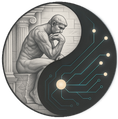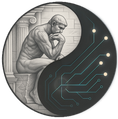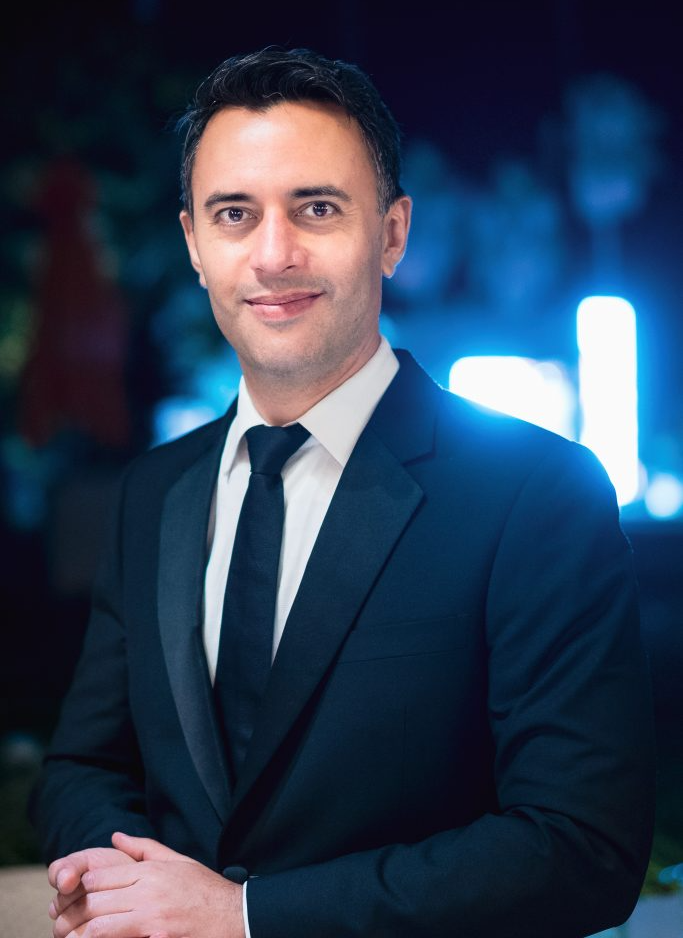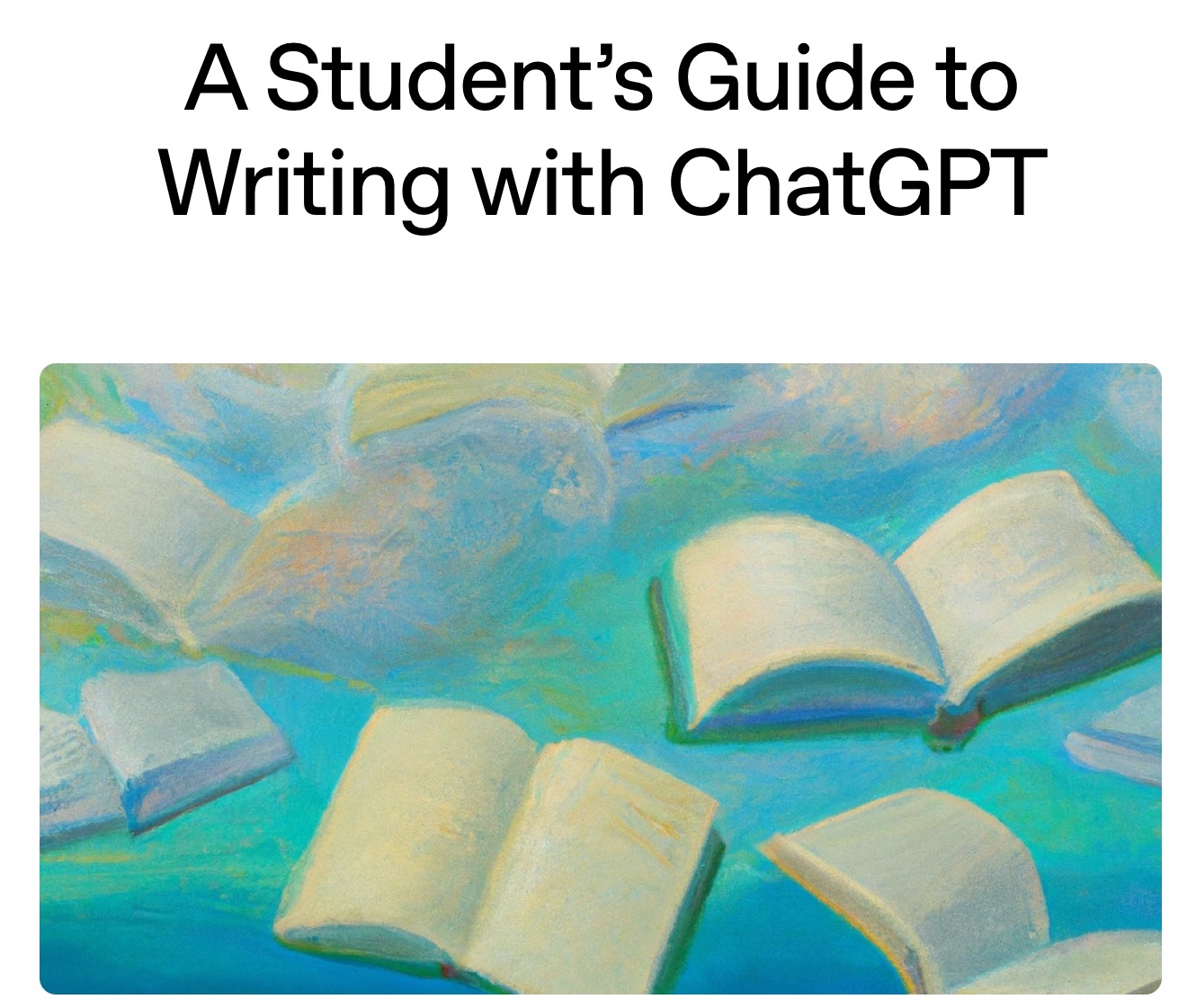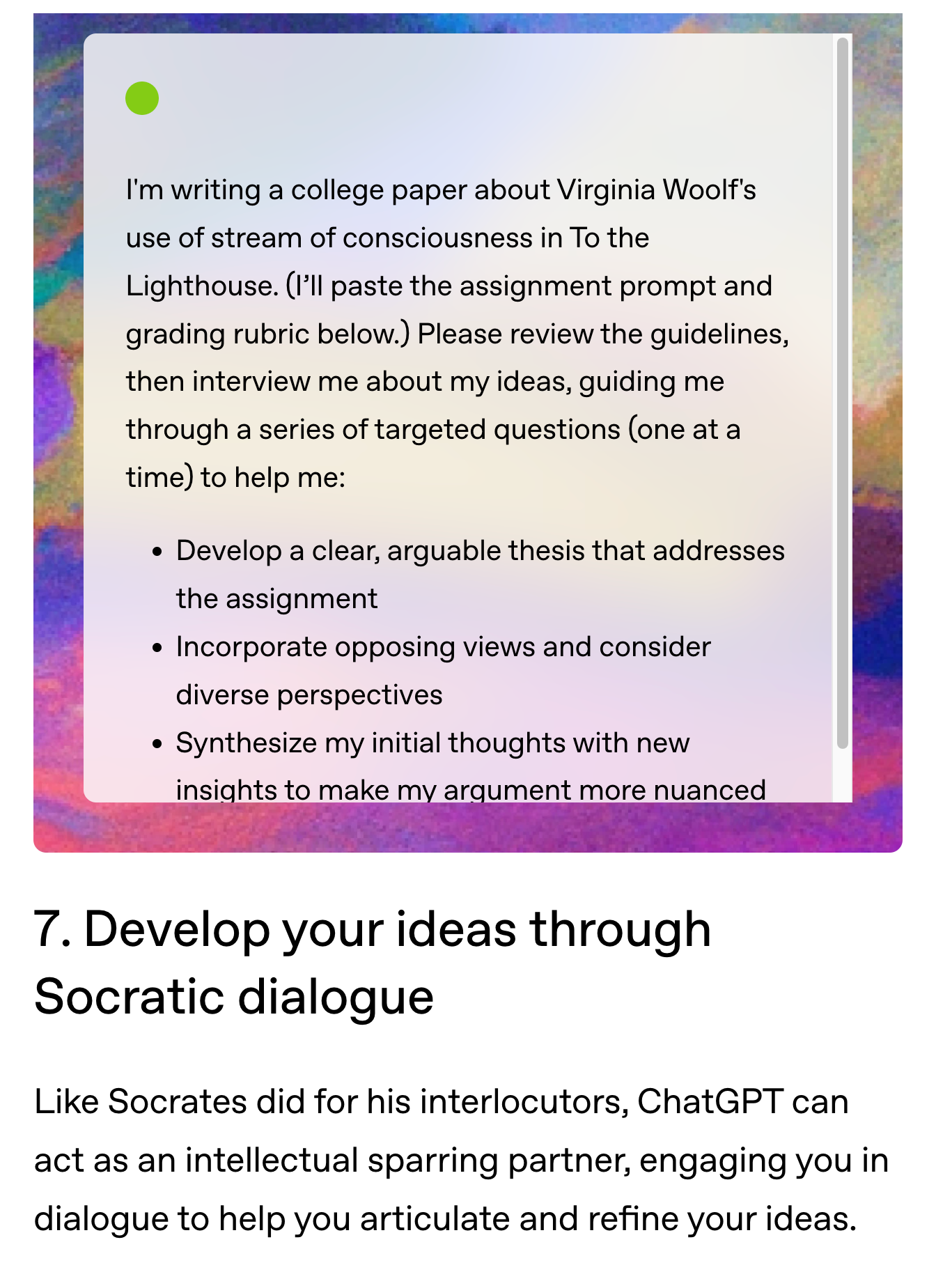Use
AI
to
Amplify
Human Creativity.
Not Outsource It
Former Head of Community for Writers at OpenAI. Taught writing at Yale. Teaching knowledge workers, companies, and universities how to use AI to think better, aim higher, and deliver higher-quality work — without outsourcing the creativity.

Speaking & Workshops
“By far the best presentation I’ve seen on how to actually use this stuff.”
— Nick Gillespie, Editor, Reason Magazine
The Socratic AI Approach
AI to help you think better and elevate your work — not outsource it
- Surface your own best ideas, stories, and examples
- Express yourself with greater clarity and force
- Get guidance, structure, and accountability to pursue and finish ambitious creative projects
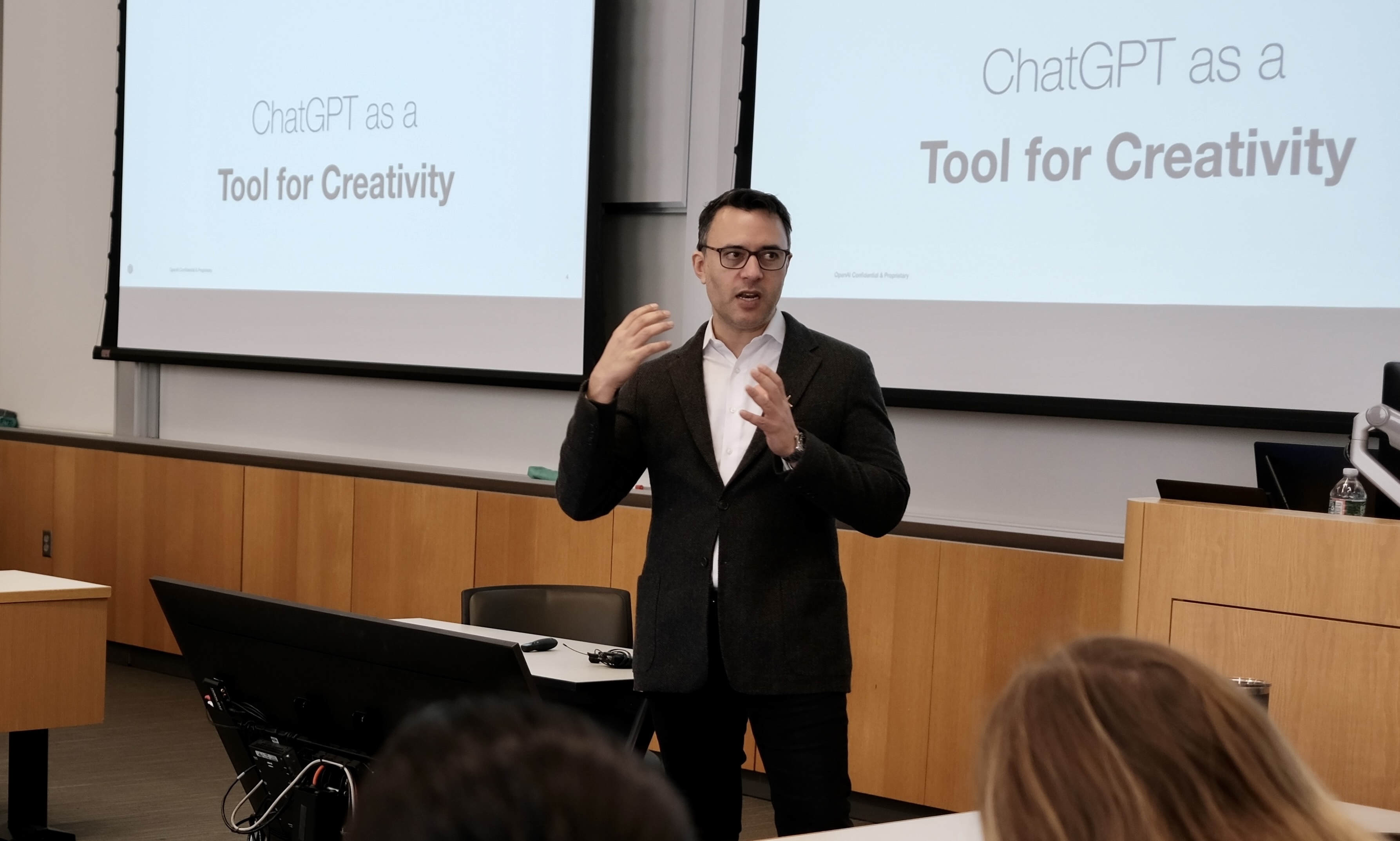
When I was at OpenAI leading the writing community, I championed a radical idea: that AI doesn’t have to threaten human creativity. That’s what I believe. AI, if used thoughtfully, can be a powerful tool to amplify human potential — helping us think better, aim higher, and deliver higher-quality work.
The conversation around AI has become so heated. But I notice that even thoughtful people are often only aware of AI’s most problematic use cases — students using ChatGPT to write their essays, content mills and LinkedIn influencers generating algorithmic slop, companies mass-producing AI novels instead of paying human authors.
I think about AI differently. When I tell people I use AI to learn a sonnet by heart, find a poem to put language to a moment of grief, or muster the courage to ask my father to tell me stories from his childhood in India, they’re genuinely surprised. It hasn’t occurred to them that AI can actually support creative work.
The same principles apply in organizations: AI as a thinking partner to clarify ideas, find better examples, and strengthen the writing that matters — proposals, narratives, lectures, memos — without outsourcing the thinking.
The human does the thinking — the AI helps you think better. The human does the work — AI provides the feedback that helps you elevate and perfect it.
I’ve come to believe that many anti-AI people aren’t actually against AI — they’re just against using AI to cheat, bypass learning, and replace human creativity.
I’m against those things too. Through Socratic AI, I teach knowledge workers, companies, and universities a different approach to AI: how to use AI not to generate prose, but to think better, aim higher, and actually finish creative work.
My keynotes, workshops, and consulting teach a repeatable practice to elevate the quality of their work: how to use AI as an iterative thinking partner to clarify ideas, find better examples, and strengthen the writing that matters — proposals, presentations, lectures, memos — without outsourcing the thinking.
Field Notes from a Creative Frontier
A Growing Community of Ethical AI Creators
When I was at OpenAI leading the writing community, my job was to seek out writers, educators, and students using AI thoughtfully and ethically in the creative process. What I found was a community of brilliant, curious people who see beyond the pro-AI / anti-AI hot-take binary.
These people hold human creativity sacred, yet they see AI’s potential. They know there are parts of the process we must preserve and defend. But they also understand that AI doesn’t have to replace human creativity — that used thoughtfully, it can be a powerful tool to help us fulfill our creative potential.
What started as a handful of early adopters has now become a movement. Writers and educators across the country are learning how to use AI as a tool to support their creative work — without ever compromising their authenticity or outsourcing their creativity.
Voices from the Community
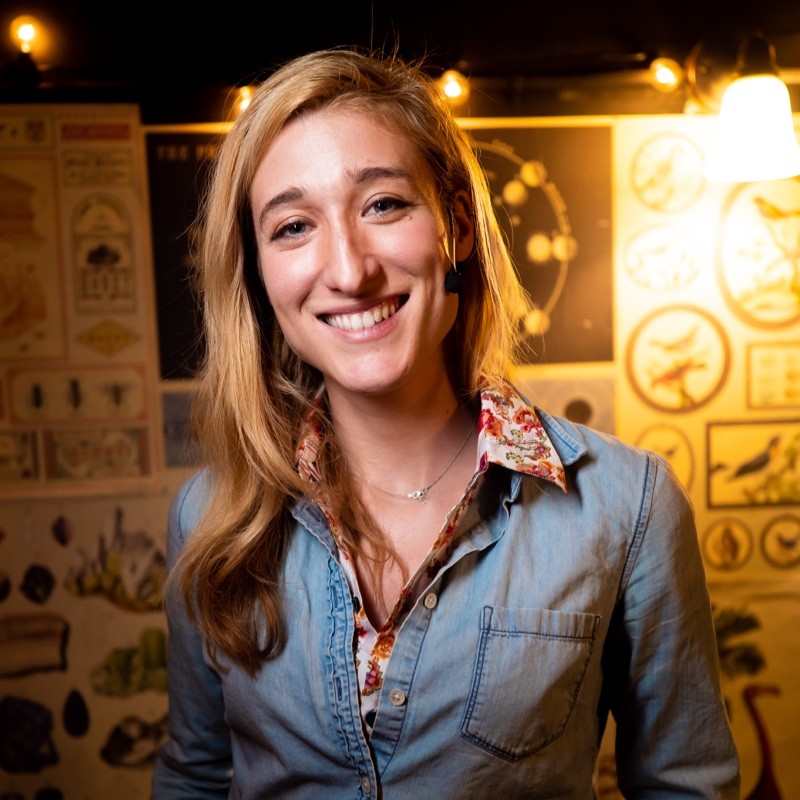
Sarah Rose Siskind
Comedian and Comedy Writer
“What’s amazing to me is I do not have writer’s block anymore — like truly. I think writer’s block is the feeling of solipsism, and it is the feeling of being totally alone. And I don’t feel alone anymore because of this tool.”
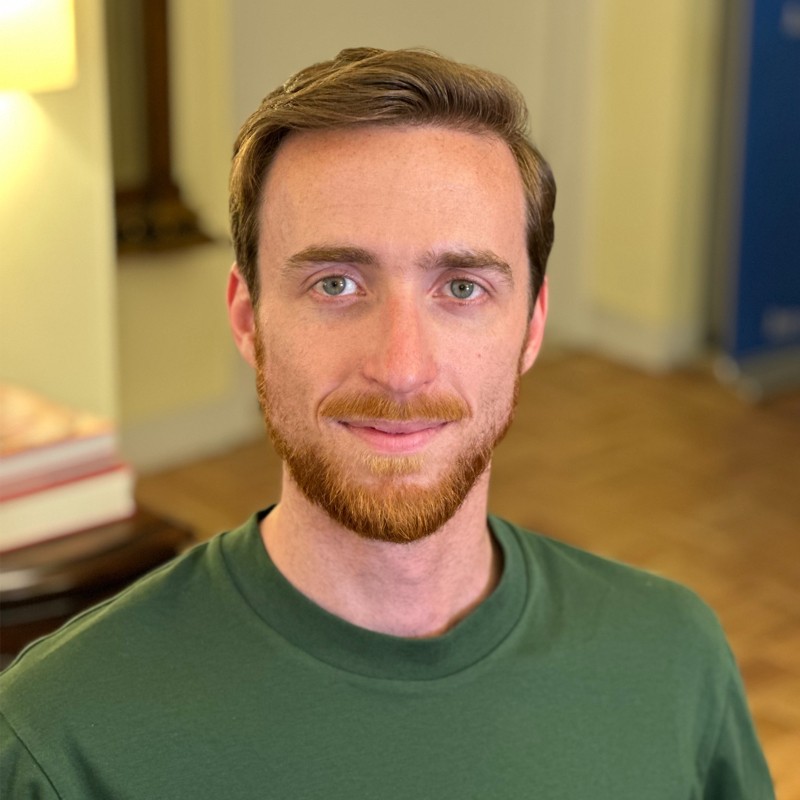
Stew Fortier
Writer and Founder
“The instinct is to say, ‘Oh, this thing just writes for us.’ But I can also prompt it to ask me questions. It can get me thinking by pulling ideas and insights out of me. What if instead of you becoming a prompt engineer, you see what it can prompt out of you?”
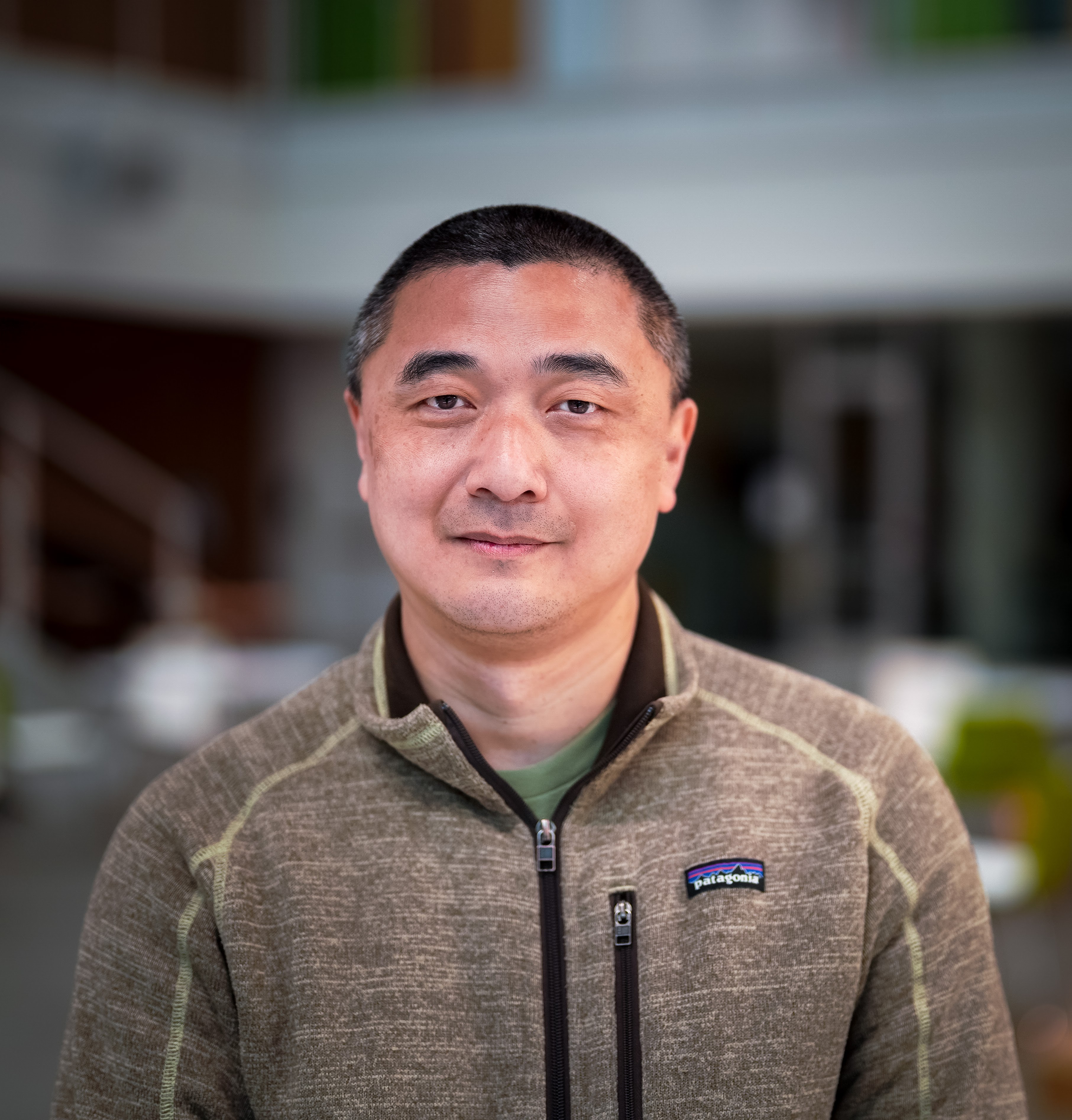
Ken Liu
Hugo Award Winner
“The amazing thing about a writers’ room is the way the intersubjectivity of working with other people multiplies your own creativity tenfold. Having the AI push you to be more original, push you to explain your idea... It allows you to get out of that ‘I’m locked in my head’ space.”
That’s the difference: the AI that pulls ideas out of you rather than generating them.
Get weekly insights on how to use AI to amplify creativity — not outsource it.
Want to bring this approach to your organization or institution?Let’s talk.
The Reframe
Don’t ask AI to be creative. Ask AI to help you be creative.
Most people fall into one of two camps:
Anti-AI
Avoid AI entirely
Pro-AI
Let AI do the writing
The divide reveals itself in how people talk about AI:
“I always know when my students are using AI.”
“It never gets my tone right.”
“It’s essentially just a plagiarism machine.”
These sentiments reveal a hidden assumption: that AI exists to do our work for us — that you either use it to generate writing or you don’t use it at all.
As OpenAI’s Head of Community for Writers, I noticed a profound irony: People use the most powerful thinking tool ever built to avoid thinking.
Most people use AI to do the work for them. I teach people how to use AI to elevate the work only humans can do.
AI not as a ghostwriter, but as an iterative thinking partner.
- Elicit your own best ideas, stories, and examples out of your head and onto the page.
- Talk out your ideas using AI as a sounding board to make new connections and reach creative insights.
- Articulate your ideas with greater clarity and force — without ever using AI to generate writing for you.
- Get big-picture editorial feedback to strengthen and refine your work.
- Use AI to coach you to develop and improve your thinking and writing skills over time.
- Break big projects into achievable milestones… and get the structure and accountability you need to actually finish ambitious creative projects.

A prompt for Socratic interviewing
Use this prompt to turn ChatGPT, Claude, or Gemini into an
iterative thinking partner — one that asks questions instead of generating answers.
A Starter Socratic Prompt
Paste this into ChatGPT, Claude, or Gemini:
Prompt template“I’m working on [x]. My goal is [y]. Do NOT attempt to write it for me. I want all the ideas to come from me. Your job is to ask me questions to help me clarify my goals for the project, help surface my own best ideas, and push me to express myself with clarity and precision.“
Filled-in example
Here is the prompt filled in:
Example prompt“I’m working on a proposal for a new sneaker retailer website. My goal is to show how a redesign will boost conversions and demonstrate ROI.
Do NOT write the proposal for me! I want all the ideas to come from me. Your job is to ask me questions to help me clarify my goals for the project, help surface my own best ideas, and push me to express myself with clarity and precision.“
This is not
- —A ghostwriter that does the work for you
- —A shortcut to cheat or bypass learning
- —AI-generated slop
This is
- —An iterative thinking partner to surface your own best ideas
- —An accountability coach to help you plan, track, and finish ambitious projects
- —An editor that pushes you to express your ideas with greater clarity and precision
What You'll Learn
The Socratic AI Toolkit
Practical training for using AI to think better, elevate your work, and finish ambitious creative projects — without outsourcing the thinking or creativity.
Surface your best ideas
Elicit your own best ideas, stories, and examples out of your head and onto the page.
Develop insights
Talk out your ideas using AI as a sounding board to make new connections and reach creative insights.
Express yourself clearly
Articulate your ideas with greater clarity and force — without ever using AI to generate writing for you.
Edit and iterate
Get big-picture editorial feedback to strengthen and refine your work.
Learn and master
Use AI to coach you to develop and improve your thinking and writing skills over time.
Set and achieve
Break big projects into achievable milestones, track your progress, and get the structure and accountability you need to actually finish ambitious creative projects.
How I use Socratic AI in my own writing
I still do the “human” part the old-fashioned way — because that’s the point.
Sometimes I go for a run and stop to dictate ideas into my phone. Sometimes I go to a coffee shop and write longhand with fountain pens and my beloved Japanese stationery.
I use AI for what it’s good at: helping me talk out my ideas, think through creative decisions, and get big-picture editorial feedback — without ever having it generate writing for me.
A prompt I use all the time
I wrote a first draft. Do not rewrite it for me. Give me feedback as an editor: what’s working and what’s not? Where am I too vague? Where do I overexplain or underexplain? Where does it get boring? Start by asking me a bunch of questions about what I want to say and how I want it to land.
What I Believe
Three Paradoxes of Socratic AI
#1
Honor Human Creativity
THE PRINCIPLE
Human creativity is sacred. Writing, storytelling, and art are acts of creation, and we must never outsource them to AI.
THE PARADOX
AI doesn’t have to be a threat to creativity. Used thoughtfully, it can be a powerful tool to help us surface, develop, and express our own best ideas — without ever outsourcing the imagination, insight, and self-expression that make us human.
#2
Embrace the Struggle
THE PRINCIPLE
Creation is born of struggle. We must resist the urge to outsource the difficult parts to AI. Writing is hard — and that productive struggle is the whole point. The most powerful insights arise in those moments of discomfort and uncertainty when you’re staring down the blank page trying to figure out what comes next.
THE PARADOX
In those moments of doubt when you’re lost and stuck, AI can be a sounding board — a thinking partner to talk out your ideas, ask you clarifying questions, and help you find your way forward.
#3
Aim Higher
THE PRINCIPLE
The goal isn’t to work less — it’s to reach higher and achieve more. Work as hard as ever and, amplified by AI, produce more and better work.
THE PARADOX
Creative work demands focus. So automate the grunt work. Let AI handle the formatting, the citations, the drudgery — so you can devote yourself to the acts of human imagination AI can’t replace.
These are not true paradoxes in the strict sense, since the statements don’t actually contradict each other. They’re maybe more like dialectics — matched truths, each in tension with its counterpart.
From Award-Winning Writer to Ethical AI Educator
Meet Jay Dixit
Jay Dixit is a writer, writing professor, and creator of the “Socratic AI” framework. He spent 10,000+ hours honing his craft as a writer — and when AI arrived, he knew immediately how to use it: not to generate writing, but to help him think and write better.
“AI is my writer’s room. In those moments of creative frustration — the times I’d otherwise give up, procrastinate, or lose hours scrolling on social media — AI can be a sounding board I can use to talk out my ideas and find my way forward.”
Writer First, Ethical AI Educator Second
Award-winning journalist for The New York Times, Rolling Stone, and Psychology Today. Conducted George Carlin’s final interview and won The Moth storytelling competition. When ChatGPT launched, Jay immediately saw its potential — not to generate writing, but to support the creative process.
Building the OpenAI Writing Community
As Head of Community for Writers at OpenAI, Jay sought out and connected with writers, educators, and creators exploring ethical ways to use AI. It was in conversations with this community that he first defined the “Socratic AI” approach.
The Movement Grows
What started as a small community has grown into a movement. Jay has shared the Socratic AI framework at Harvard, Wharton, Columbia, Yale, and through OpenAI’s flagship education resources — demonstrating that AI can amplify human creativity rather than replace it.
Today: Building the Movement
Through speaking, consulting, and the Socratic AI newsletter, Jay helps writers, educators, and institutions discover how to use AI thoughtfully — preserving what makes us human while harnessing technology’s potential.
Why This Matters
Refusing to engage with AI won’t make it go away. It just means we’re ceding the conversation to people who treat AI as a content factory.
If you hold creativity sacrosanct but want to explore AI’s possibilities... If you wince at AI slop but refuse to surrender the fight to growth hackers... If you believe AI should support human creativity, not outsource it... then you’re in the right place.
The best way to defend human authenticity is for us to be the ones who shape how people use AI — and guide others toward using it in ways that honor human creativity.
Choose Your Path
Think Better. Do Better Work. Achieve More.
AI to Elevate Your Work — Not Outsource It
Learn how to use AI without outsourcing the thinking that makes your work valuable.
For Knowledge Workers
Use AI to think better, do better work, and achieve more — without outsourcing the thinking that makes your work valuable.
- Practical techniques from writers, strategists & creative professionals
- Socratic interviewing, brainstorming & thinking partner prompts
- Access to the practitioner community
For Organizations
Help your teams use AI to boost productivity and produce higher-quality work — without outsourcing the thinking that makes their work distinctly human.
- Corporate training & workshops
- AI adoption frameworks & best practices
- Leadership keynotes & strategic guidance
For Institutions
Most universities treat AI like a plagiarism problem. I show educators how to guide students toward using AI to challenge and deepen their thinking by getting the AI to ask thoughtful questions to help them figure out what they want to say and express it with clarity and precision.
- Faculty development & teaching strategies
- AI-resilient curriculum & assignment design
- Academic policy & implementation guidance
Ethical AI Talks & Workshops
Talks and workshops that teach a different way to use AI: as a thinking partner — so people can think better, achieve more, and deliver higher-quality work — without outsourcing the thinking.
A keynote that reframes AI as a thinking partner — not a content generator. Attendees learn a different way to use AI: not to automate work, but to think better. Built for conferences, company events, and faculty summits. Attendees leave with 3 prompts they can use immediately.
Hands-on workshop covering practical prompting strategies, the Socratic AI framework, and ethical use guidelines. Participants walk away with concrete techniques for using AI to think better and produce higher-quality work.
Learn how to use AI as a thinking partner to clarify ideas, find better examples, and strengthen the writing that matters — proposals, narratives, presentations — without outsourcing the thinking.
Stories and strategies from writers, artists, and knowledge workers using AI to push their imagination while keeping the creative process fundamentally human. Discover how AI can help you create better work, not do your work for you.
Half-day workshop on how to use AI to upgrade the quality of your team's writing and thinking for memos, proposals, narratives, and presentations. People practice using AI as an editor and sounding board: clarifying arguments, pressure-testing ideas, surfacing stronger examples, and rewriting drafts — without ever having AI generate the writing. Teams leave with a repeatable workflow and a small set of prompts they can use immediately.
For universities: Turn memory checks into reasoning workouts. Faculty learn practical strategies to design assignments that use AI as a learning tool rather than a shortcut.
Perfect for organizations with mixed feelings about AI. Learn the difference between AI that replaces human work (producing mediocre results) and AI that elevates human work (producing better results than before).
Tell me your audience, context, and goals, and I'll design a session around that.
Core Philosophy
The Socratic AI Approach
A human-centered methodology that reframes AI as a collaborative thinking partner. AI is at its best when it helps humans surface their own best ideas and express them with clarity and precision.
How My Socratic Questioning Approach Helped Inspire ChatGPT’s New Study Mode
Spring 2024: Interviews with Writers and Educators
Inspired by my interviews with writing community members like Stew Fortier and Ken Liu, I begin exploring how to use AI to ask questions instead of just providing answers. The idea is simple: Flip the script and let AI ask the questions for a change.
Summer 2024: I Develop the Socratic Framework
I refine the “Socratic approach” through conversations with novelists, screenwriters, and writing professors. My radical idea: Rather than ban AI, we should teach students how to use AI to challenge and deepen their thinking.
Fall 2024: I Publish My Student Guide
I document my approach in the Student Writing Guide I publish on OpenAI.com in fall 2024, providing examples and strategies for educators and students.
AI Should Amplify Thinking, Not Outsource It
My philosophy — that “productive struggle” is important to learning and that students should “use AI as a tool, not an answer machine” — becomes central to OpenAI’s education messaging.
August 2025: Inspiring a New Product
My Socratic approach helped inform and inspire a new product: ChatGPT Study Mode. Designed to foster deeper understanding, Study Mode asks Socratic-style questions and offers step-by-step guidance instead of quick answers. (Just to be clear: A “tutoring mode” — “Hey ChatGPT, teach me about ionic bonds” — was already in the works. The Socratic questioning was my contribution.)
Study Mode Launched
With the launch of Study Mode, “Socratic-style questions” become a core feature of ChatGPT — bringing my educational approach directly into the product that tens of millions of students now use every day.
Recognition
Media & Recognition
Featured in leading publications and trusted by elite institutions worldwide.
Featured In
The New York Times
Writer
Psychology Today
Senior Editor
Rolling Stone
Writer
Harvard Business Review
Writer
Speaking & Workshops

Harvard

Yale
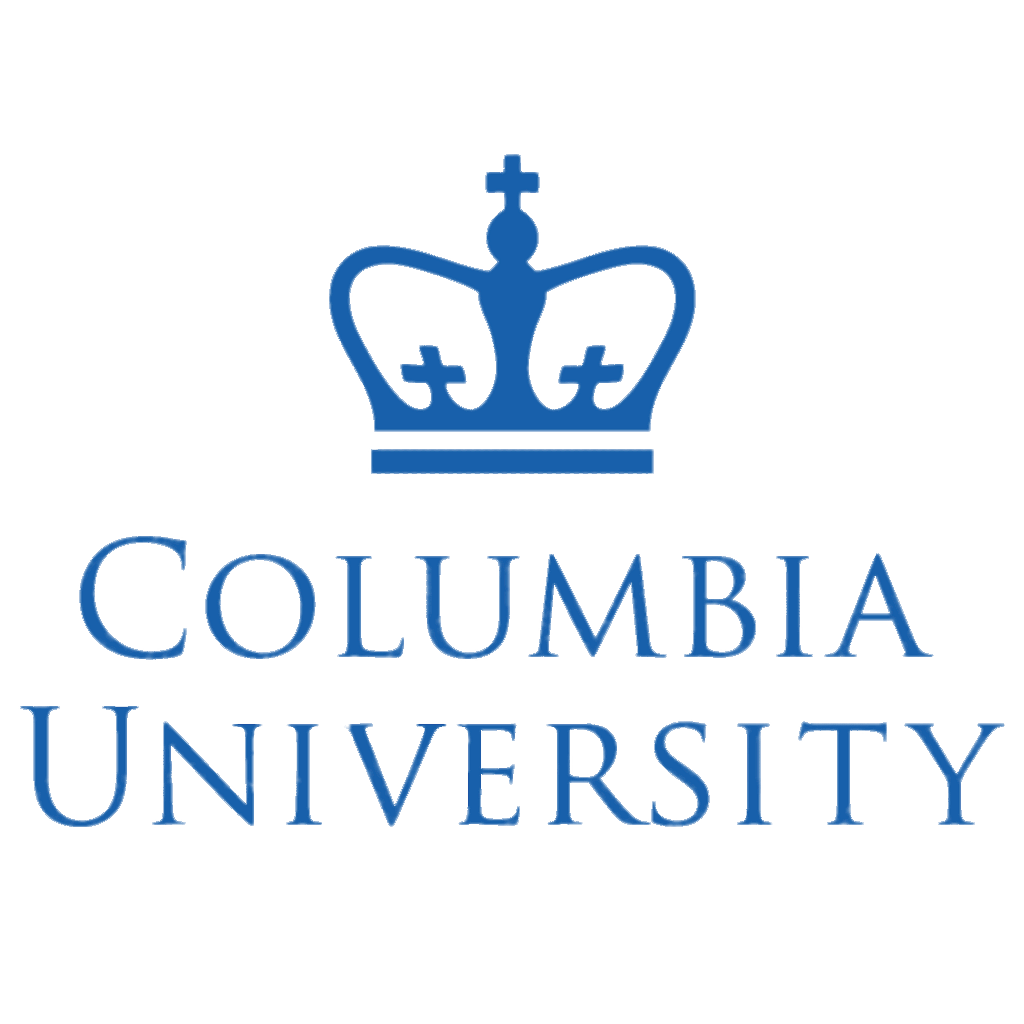
Columbia

Wharton
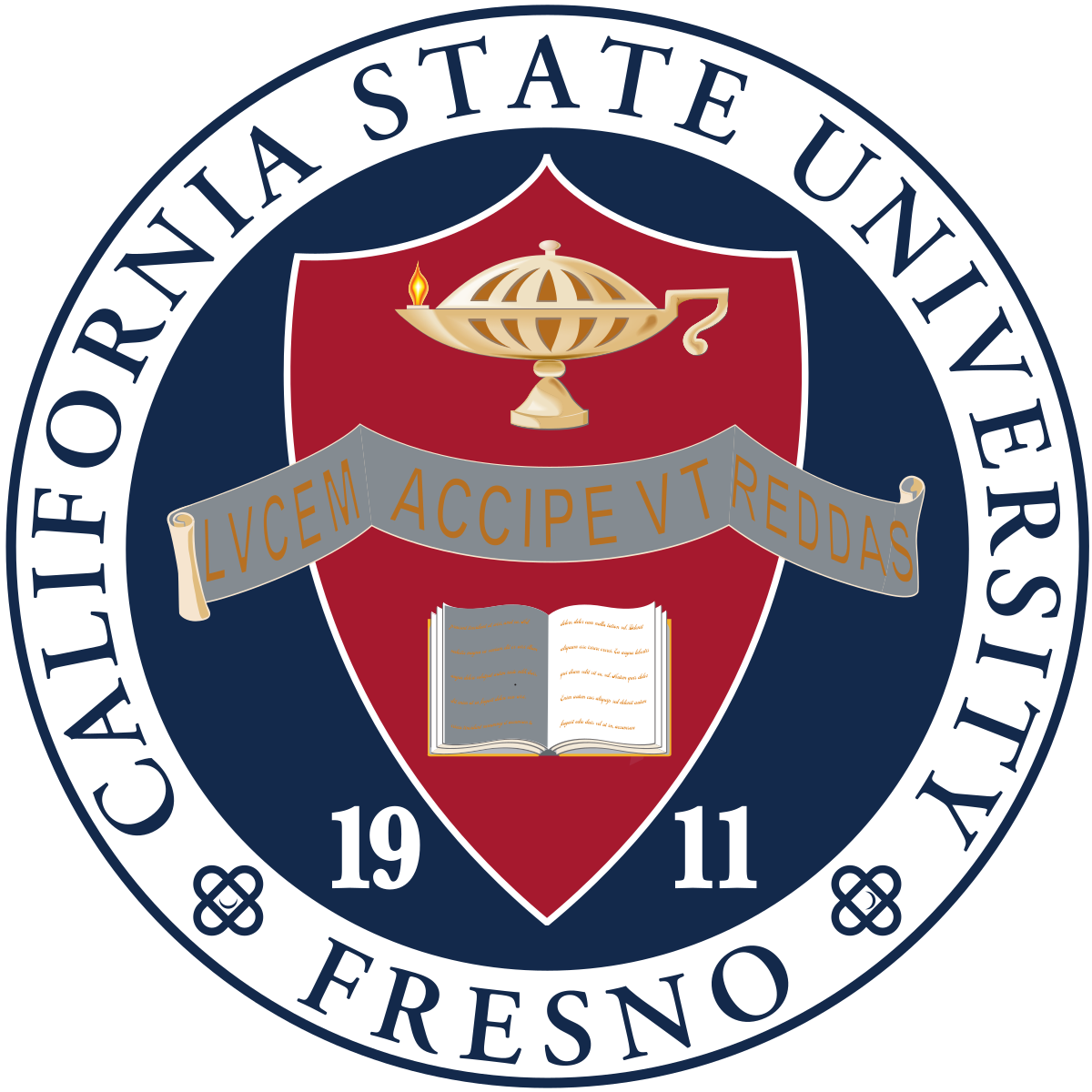
CSU
“When I see the way Jay uses ChatGPT, I realize I’m using it at a caveman level.”
Human Rights Foundation
“I love the way Jay thinks about AI. When you hear something that affects you deeply, it’s because you already knew it was true on some level. That’s how I feel about Jay’s ideas. He changed the way I think about AI.”
Editor-in-Chief, The Signal
“By far the best presentation I’ve seen on how to actually use this stuff.”
Editor, Reason Magazine
“Using Jay’s Socratic AI techniques, I used it to get all my ideas down and write the article I’d been wanting to write all year, and I actually got it published thanks to Jay!”
The G4 Alliance
Want your team doing better work? Use AI to raise the quality bar, not cut corners.
Keynotes, workshops, and consulting that teach teams to use AI as a thinking partner, guide, and editor — supporting them producing clearer, stronger work without outsourcing the thinking.
